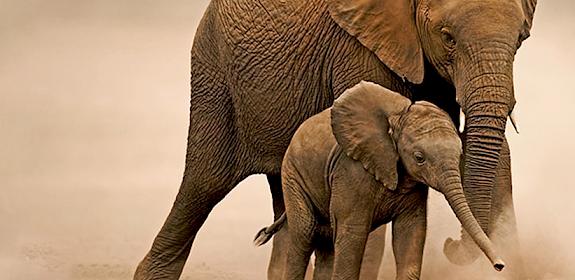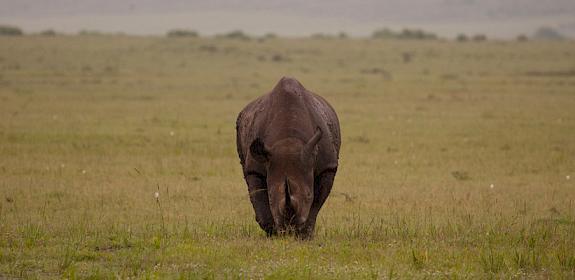New treaty to boost protection of gorillas—TRAFFIC, WWF
Gland, Switzerland, 26 October 2007—The new agreement endorsed today in Paris, France, by nine African countries to better protect gorillas, is a major conservation achievement, said WWF, the conservation organization, and TRAFFIC, the wildlife trade monitoring network.

This is the first time that countries where great ape species are found in the wild are to be legally obligated to act in a coordinated manner against threats to these animals. The agreement, which will function like a mini-convention or treaty, specifies efforts that governments need to undertake and to collaborate on. These include combating poaching, supporting law enforcement and building capacity in the legal and judicial areas. The agreement will be legally binding, unlike previous declarations from the range countries, such as the GrASP Kinshasa declaration in 2005.
“This is exciting news,” said Dr Susan Lieberman, Director of WWF’s Global Species Programme. “This new agreement is a powerful tool because it has the potential to reshape the way gorilla conservation is conducted.”
“It will promote collaboration and political will to secure habitat, and stop escalating threats such as poaching and Ebola outbreaks, all threats to the future of the world’s gorillas.”
Central African Republic, Uganda, Democratic Republic of Congo, Republic of Congo, Nigeria, Equatorial Guinea, Angola, Cameroon, and Gabon participated in the talks while Rwanda was unable to attend. WWF and TRAFFIC, who are active in gorilla conservation in most of the range countries, were heavily engaged in the negotiation process and final text.
“We pledge our support to work with governments to help make this agreement a reality, for the benefit of gorillas, their habitats, and local communities,” added Dr, Lieberman.
"TRAFFIC warmly welcomes the new agreement, which marks a major conservation achievement," Roland Melisch, TRAFFIC's Global Programme Co-ordinator
"TRAFFIC warmly welcomes the new agreement, which marks a major conservation achievement," said Roland Melisch, TRAFFIC's Global Programme Co-ordinator. "The priority now is to make sure that the agreement's recommendations can be turned into conservation action as soon as possible. Only then will we see an upturn in the fortunes of these magnificent animals."
Notes:
* Six countries signed what is called the "final act" of meeting which outlines and endorses the agreement.
* Great apes comprise gorillas, bonobo, chimpanzees and orang-utans. Like all great apes, Eastern and western gorillas are endangered with extinction in the wild. The two gorilla species inhabit the shrinking habitat of equatorial
Africa. There are two subspecies of western gorilla: western lowland gorilla (Gorilla gorilla gorilla), and the more recently discovered Cross River gorilla (G. g. diehli). The two eastern gorilla subspecies, mountain gorilla (G. beringei beringei) and eastern lowland or Grauer’s gorilla (G. b. graueri), inhabit the upland and mountain forests of eastern Central Africa.
* GrASP is the United Nations' Great Ape Survival Project. It is an innovative and ambitious Partnership between the United Nations Environment Programme (UNEP) and the United Nations Educational, Scientific and Cultural Organization (UNESCO).
* Other agreements and conventions encompass great apes (e.g. CITES), but are not specifically targeting these species.



